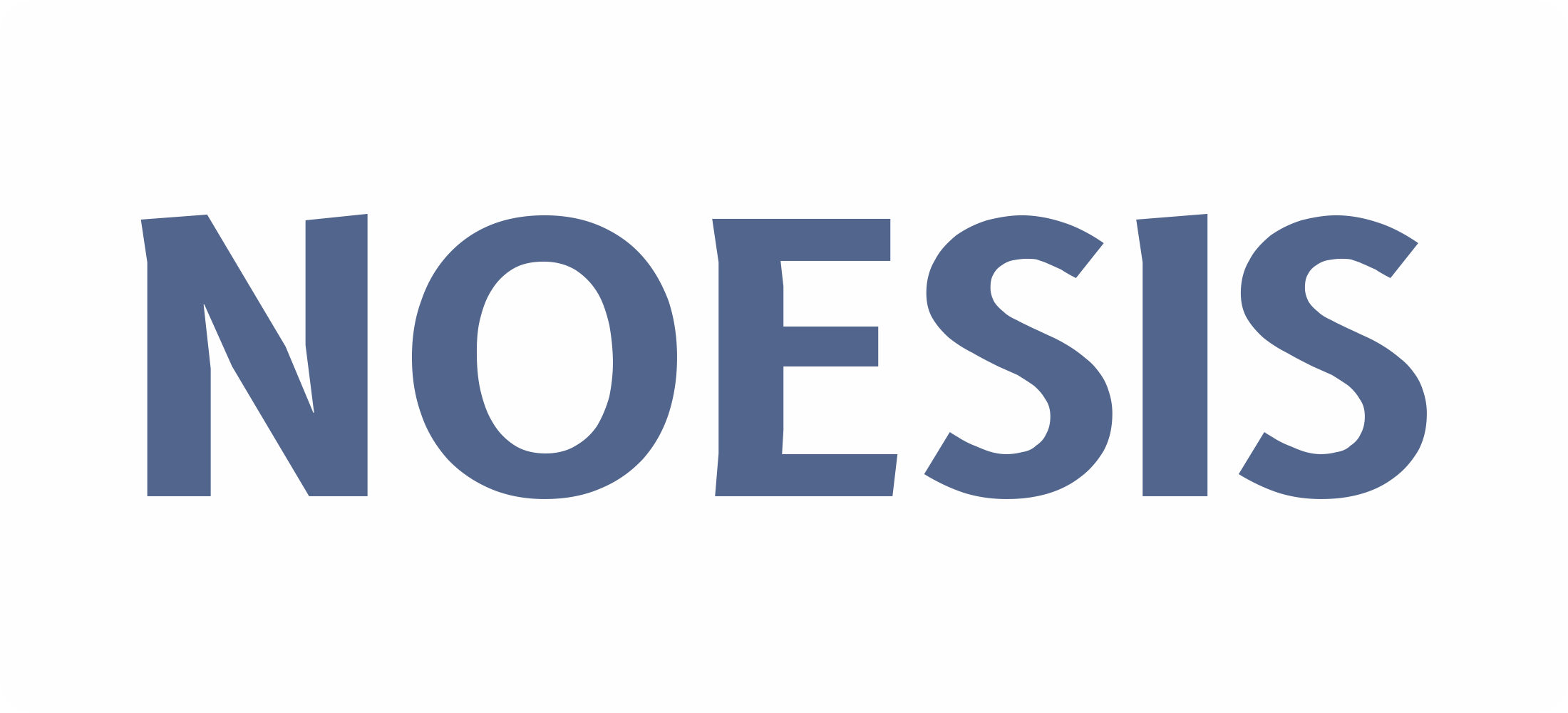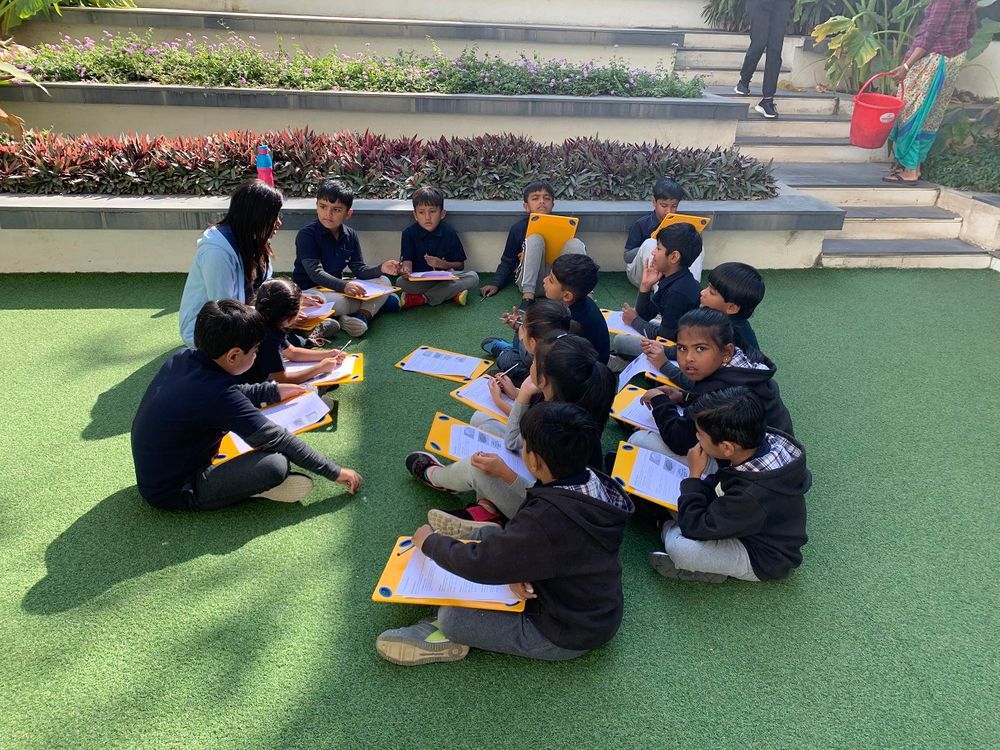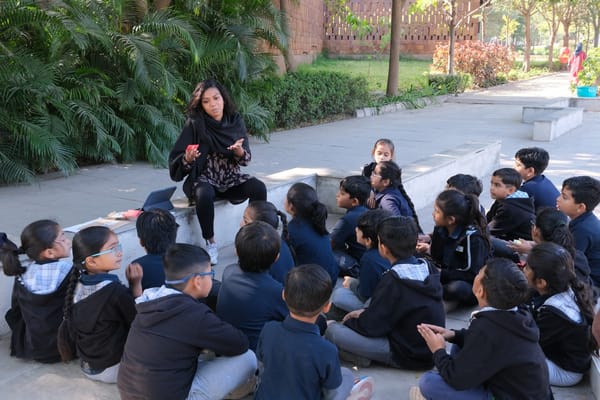Coronavirus and Learning
Let's not confuse more with better and efficiency with effectiveness.
We are living in unprecedented times. Everyone realises that now. As we enter the third week of total lockdown, the frustration is beginning to take its toll. Most industries, apart from the essential ones, have been in total or near total shutdown. Education sector has proven remarkably resilient. The shift to alternative means of education has been nothing short of incredible. I am a "technology-realist" when it comes to education. I am not an optimist and neither am I a naysayer.
Skip this next paragraph if you're short on time or attention.
COVID-19 pandemic has led to an unprecedented interest in and adoption of online learning. With schools and universities closed, technology tools have been instrumental in continued learning of students around the world. At The Northstar School and RK University, we have switched to online learning within 2 days of closure. At Northstar, we have been using online tools since the school began (4 years back). At RKU, since the last 3 years, we have undertaken a very large and difficult implementation of self-hosted Learning Management System (LMS). So the transition at both institutions was simply to move to video conferencing as an addition to our existing suite of online learning tools. 400+ courses across all schools of the university, including engineering, pharmacy, health sciences and management, have had an online course on our LMS that supports the face to face classroom learning.
Having said the above, I think it is important to remember that it is unwise and impractical of anyone to think that education will flow seamlessly from classroom learning to online with the same outcomes. I DO NOT believe that there is any alternative to face-to-face learning. All the marketing calls around "use our product" and continue your child's learning are misleading. In times of crisis, like the current COVID-19 pandemic, all aspects of life will be disturbed to varying degrees. It is grossly unfair to teachers and institutions to claim that there are technology alternatives that provide the same learning experiences and slide seamlessly into a completely new framework of learning. Having said that, technology tools help in mitigating and minimizing the potential loss of "face time". Technology tools also help in providing logistical structures that support the teacher (such as submission platforms or discussion platforms).
Let us not believe that learning as normal will continue while the world outside is in unprecedented tumult. Let us accept the fact that like all aspects of life, education will be affected. We will learn and grow through this. There are many difficult decisions that we as founders and heads of institutions have to take in the coming weeks. Believing that we will come out unscathed or unchanged is not an option anymore. As Aisha S. Ahmad says in this great article: Let us all "abandon the performative and embrace the authentic".
I am a bit taken aback by the pressure of continued uninterrupted education from the parent community and government departments. We all have heard the jokes and seen the memes of how parents wish the school opens soon. What we don't see is the pressure being put on schools and educators for continuing their child's learning as if nothing is happening in the outside world! All industries are trying to cope with the incredible and perhaps unsurmountable economic pressures this pandemic and lockdown has brought along.
I don't believe that learning to use Zoom or any other video conferencing tool means that education can now continue as was. Technology is never the solution. Never ever. Ever. It's the pedagogy, enabled (and many times made worse) by technology that needs to be mastered. Educators, in 2 days notice, are expected to become online learning champions. Like everyone, they are also managing these tumultuous times, managing their homes and their kids, all while learning to use new technology tools, and to learn how to make use of it to push learning forward. Many times (if not all) there are tech and non-tech issues going on, before and during an online session with technology like Zoom. Here is just a sampling:
- Video conferencing is new for everyone including teachers, students and parents. Give teachers and students time to adjust to the new way of learning.
- Not everyone understands conferencing etiquette instinctively. Students come late, parents come late. Some are on time; teachers are teaching; one person enters. Flow interrupted.
- To have some sort of communication, however poor, teacher tries to keep students unmuted. A cacophony of surrounding noise fills the whole meeting room. Parents shouting in the background, a clunky fan, a street hawker shouting to sell vegetables. So the teacher mutes all. Interaction gone. Muting and unmuting 20 students one by one for them to talk. If you think that's practical, you've never taught a class of 10-year-olds.
- Teacher gives a quiz on Google Forms. Students are using shared devices. Not all have personal devices. Student clicks on the quiz. She doesn't have access because on the device her parent is logged in. Teacher tries to explain. Sign out, then sign back in with your school ID. No success. Tries 3 times. 4 times. 15 minutes are gone. That is 1 student's issue solved.
- The meeting links are posted in some sort of communication platform. 3 people still can't see it. Now, we ask teachers to make unique meeting links for all meetings. 3 or 4 classes a day. 4 unique meeting links for one day. Few parents have no idea what's going on. Teacher tries to keep tab of her 4 links across multiple grades and trying to remain sane.
- The internet suddenly becomes unstable.
Teacher - Can you hear me?
Student 1 - Yes, ma'am
Student 2 - No, ma'am
Student X - Enter Pink Floyd - Your lips move, but I can't hear what you're saying...(you're my friend if you get that song!) - Enter Zoom security concerns. I understand. Legitimate concerns. But the calls to simply move to some other platform overnight? Practically everything you do online involves risk. If we were to see the laissez-faire approach taken by most in their day-to-day dealings with technology (to mention a few - poor passwords, no two-factor authentication, no protocol for public network use, getting caught in glaringly obvious phishing scams and scams by your favourite Nigerian prince, and more), I can't help but wonder how great it would be if the local newspapers were to highlight that as they do Zoom security risks. There are risks, yes. But it is impractical, and frankly unfair, to ask all teachers to be vigilant as if it's their fault somehow. They should be, but be nice about it. (Zoom pays me nothing)
I'll stop here. You get the point. Be kind. Be gentle. To your kids. To your teachers. Everyone is trying their best and frankly our teachers are doing an incredible job.
One of the reasons of this insistence on having interrupted education in the times of an unprecedented global pandemic is, I believe, the transactional model that people apply to education. I pay money, I get education. While it may be rational economic thinking, this model is fundamentally harmful to education. I don't mean that only for a situation like the current one. I mean this model of educational thinking is harmful in any given situation. Linking only (even primarily) economic value to educational inputs and outcomes will not lead to good, meaningful education. Let's not reduce the institution of schools or universities to economic instrumentalism. What we do in schools and universities is not merely to increase life-time earning potential (which seems to be a benchmark of success for an institution). Another reason is, quite simply, that we do not value education. We want education to be cheap while also being great. Essentially we want value for money in education just as we want "paisa wasool" movies and products. Unfortunately, this only leads to bad education as we can see all around us. May be, as we get out this crisis we should leave some mindsets behind. Let us start with leaving this one behind. How are we going to measure the monetary value of a teacher giving a reassuring smile to a child who is unconfident? How are we going measure in 'future income potential', the gentle nudge a child received to pursue an unconventional career or a creative passion? How are we going to convert to numbers, the motherly insistence on feeding a kid at lunch who isn't feeling like eating?
Learning is fundamentally a social undertaking. We learn with each other and from each other. Deep and meaningful relationships form the cornerstone of learning. At the expense of sounding repetitive, online distance learning CANNOT come even close to establishing such relationships and therefore such learning.
The exponential growth in adoption of technology to keep being productive at home and, particularly, in continuing teaching is a blessing in disguise. While tech (and edtech) companies can feel that finally their time has arrived, it will also make it unequivocally evident to all what the value of human connection and social nearness is in education.
As parents or guardians, please spend this time (that no one asked for) with your kids in simple and meaningful ways: read with them, read to them, play with them, watch a movie together, talk. Simple and effective. Recreating a school schedule at home is not going to recreate school learning at home. And you are NOT losing out. Missing a few weeks of school is not going to derail your child's developmental trajectory. She is not going to fall behind. Schools, kids and families will work together and come out of this stronger and wiser.



